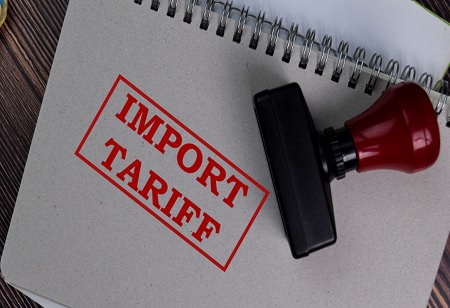
Thailand Mulls Tariffs on Chinese Imports to Protect Local Industry

 The Thai government is considering implementing a seven percent value-added tax on Chinese goods priced below 1,500 baht (approximately US$40) that are passing through Thailand's free trade zones. This measure aims to protect local businesses from the impact of a surge in cheap imports. Currently, products valued under 1,500 baht are exempt from both duties and VAT.
The Thai government is considering implementing a seven percent value-added tax on Chinese goods priced below 1,500 baht (approximately US$40) that are passing through Thailand's free trade zones. This measure aims to protect local businesses from the impact of a surge in cheap imports. Currently, products valued under 1,500 baht are exempt from both duties and VAT.
The Federation of Thai Industries has stated that the influx of Chinese imports has prompted local manufacturers to scale back production by around 50 percent. Additionally, figures from the Bank of Thailand indicate that imported consumer goods made up 24 percent of the total imported goods in the first quarter of 2023, with 9.1 percent originating specifically from China.
Implementing tariffs on Chinese imports may have implications for bilateral relations, considering China's status as Thailand's primary trade partner. In 2023, bilateral trade reached US$135 billion, and China's investments and technology transfers have significantly contributed to Thailand's industrial development, particularly in its efforts to establish itself as a regional hub for electric vehicles. Furthermore, Thailand heavily depends on revenue from Chinese tourism, with Chinese tourists accounting for the largest share of visitors prior to the pandemic, comprising approximately a quarter of the 40 million arrivals in 2019.
It is crucial for Thailand to safeguard its small and medium-sized enterprises (SMEs) and enhance their economic contribution to foster GDP growth. SMEs currently constitute around 35.2 percent of Thailand's GDP, encompass 99 percent of all businesses, and provide employment to 70 percent of the nation's workforce. These figures underscore the substantial economic influence of SMEs and highlight their pivotal role in propelling overall economic expansion and progress in the nation. With this in mind, the government aims to elevate the economic share of SMEs to 40 percent of GDP by 2027.
Nevertheless, despite their significant contribution, Thai SMEs encounter constraints in engaging with global value chains and international trade. These limitations include restricted access to financing and insufficient business management capabilities required for expansion.

